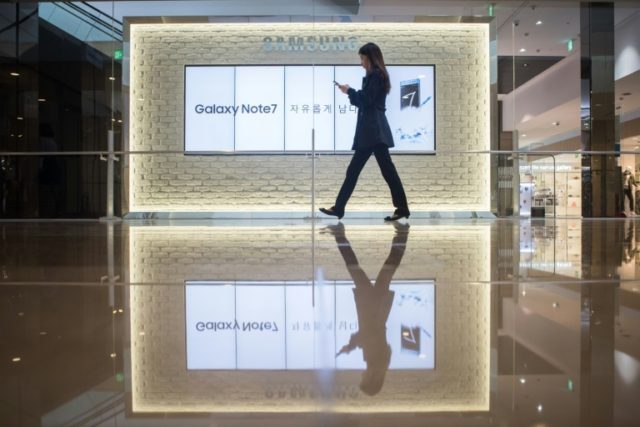The Wall Street Journal reported that as Internet chatter built claiming batteries supplied by a Samsung affiliate for the Galaxy Note 7 smartphone were spontaneously catching fire, the company canceled the product before the U.S. Consumer Product Safety Commission could ban the device due to safety concerns.
Samsung is estimated to have lost $5 billion on the cancellation and recall of 2.5 million of its large format Galaxy Note 7 smartphones. The recall does not affect the standard-size Galaxy S7 Edge smartphone that has already sold at least 13.3 million units this year.
Originally introduced in 2011, the Galaxy Note series was an instant hit with millennial professionals more interested in using their smartphones as a mobile analytics devices, rather than cell phones. Viral tech blogs gave “The Note” the nickname of “phablet.”
The third generation Galaxy Note 3 released on September 25, 2013, received rave reviews and sold a stunning 10 million units in its first two months of its launch. With a big piece of iPhone’s market share being eviscerated by “The Note,” Apple was forced to introduce its own phablet they named the iPhone Plus.
Samsung was already the world leader in low-end cell phone sales before the Note’s introduction. But the first-phablet-to-market gave such cache to the brand that its entire Galaxy line became the only significant premium priced competitor against the iPhone.
Apple iPhone sales account for almost two-thirds of the company’s revenue. But in the last two quarters of 2016, iPhone revenues fell for the first time in a decade, while Samsung’s Galaxy smartphone sales led to Samsung’s biggest profits in two years.
Despite the bad press and the Samsung’s cancellation of the Galaxy Note 7 on October 11th, Apple is still expected to release earnings on October 25th that show iPhone revenues continued to fall in the third quarter. The grim performance comes despite the September 16th introductions of the new generation iPhone 7 and iPhone 7 Plus.
The U.S. Consumer Product Safety Commission (CPSC) that has authority to oversee smartphone product recalls, is now investigating whether Samsung notified the federal agency soon enough for the agency to launch a safety review before the recall and cancellation of the product. According to the Wall Street Journal, U.S. lawmakers are angry that Samsung’s decision to launch its own recall, bypassing the CPSC’s formal process to determine the root cause of the Note 7 fires.
But by Samsung pulling the Note 7 quickly, the company prevented what would have been even worse brand damage if the U.S. federal regulator formally deemed the product a safety risk, and then issue a ban.
That type of negative publicity would risk severely undermining Samsung’s February launch of its next-generation flagship smartphone, the Galaxy S8. By Samsung acting decisively to voluntarily institute a blanket Note 7 recall, the company has been able to control its relationships with customers.
On October 24th, Samsung told South Korea customers that if they traded their Note 7 phablet for either a flat-screen or curved-screen version of the Galaxy S7, they will get a 50 percent discount during next year’s launch of the Galaxy S8 and Galaxy Note 8 smartphones. Although the company has been mum about expanding the incentive, Breitbart News expects that Samsung will offer this aggressive incentive worldwide.
It is believed that Samsung still does not know what caused the design failure of Note 7’s batteries produced by its Samsung SDI Co. affiliate. Outside experts have speculated that the culprit might not be the batteries, but might be associated with the “firmware” that manages how the battery interacted with other Note 7 circuits.
Samsung is undoubtedly going to get spanked by the CPSC for recalling the Note 7 before regulators could demand a recall. But by then, the Galaxy S8 and Note 8 will be back to receiving rave reviews and probably continuing to take market share from Apple iPhones.

COMMENTS
Please let us know if you're having issues with commenting.